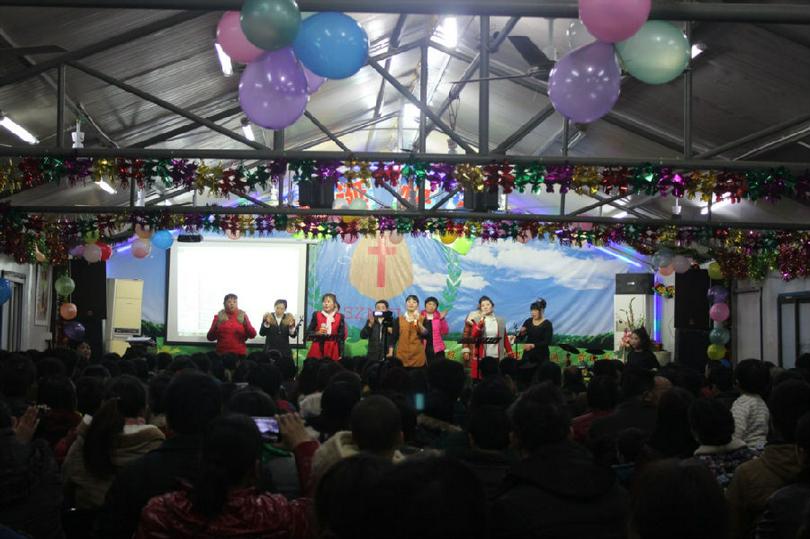During the growing urbanization in China, migrant workers who fight to provide their families with better lives are one of the neglected group. They’re experiencing many hardships and pressure through finances, culture, children education, and biases from urbanites in the city.
Among the group there are many Christians, most of those who grow up in Christian families and attend rural House Churches, describing themselves as "already having faith in the hometown." Besides facing the general problems as many migrant workers do while working in the city, it is rare but known that they run into some pressure because of their faith in the real life when settling down in the first-tier cities, especially in those places where traditional folk beliefs prosper.
"It might be easier if we don’t say we believe in Jesus. But we will be viewed strangely, if not," says Rev. Zhang, a 50-year old man who had moved to the cities in the area of the Yangtze River Delta over 20 years ago. Years later he gradually shepherded migrant Christian workers and founded a church for migrant workers.
he currently lives in a second-tier city, a melting pot between an urban and rural section which has begun to develop fast as a part of city, due to urban expansion. Over its history, the city was deeply influenced by Confucianism, Taoism, Buddhism and other folk thoughts but later churches were built here and local Christians were raised because of the efforts of missionaries. However, due to misderstanding of religions from the 1950s up to the Cultural Revolution period, it lost many local churches and Christians.
Over the recent ten years when the social environment is becoming open and people are getting richer, people want to seek for spiritual support so that folk beliefs including some superstitions such as worshiping ancestors or Bodhisattva have risen up.
"They are not serious Buddhists, just folk Buddhists who burn incense every day without following rules or joining any fellowship. It is rare for people to have faith in Buddhism and many follow any of the superstitions, mainly folk superstitions and ancestor worshiping," says Zhang.
Zhang continues, "They are cold to the locals who believe in Jesus. If you follow Jesus, you are not permitted to visit your relatives. So Christians here say they don't have many relatives or friends after following Jesus. It would be better if we outsiders don't say we believe in Jesus, but if we tell them that we do, local people treat us in the same attitude and as they do to local Christians.' "
He talks about similar experiences many believers have in his church, "When we rent apartments here, the landlord don’t ask 'are you religious or not' but 'do you make profits of religion'."
Although a few households who believe in Jesus in the town don't burn incense or worship Buddha, they don't attend services and don't know what true faith is, only following their previous family tradition.
Zhang tells a story about a grown-up daughter, ready to marry. "One of the neighbors introduces to her father a rich man in the village and he says if she wants to marry him then she has to give up her faith. For the man's family has a better economic condition. Her father brought the Bible back to the church and said that if he was not religious, his daughter could not get married. Here, if you believe in Jesus, the neighbors around will cut off from you."
The attitude continues even to migrant Christian workers. "House-owners can rent houses to you when many Christians say 'we're not religious' while if you say you're Christians, they immediately refuse to rent to you. Moreover whatever you say they don't believe you and drive you away after knowing this when the house is leased to you,'" says Zhang.
Zhang recalls his own experience that he came here working in 2003 and rented a house. The renting contract expired by the end of 2014 when the landlord, a Buddhist, told him to move to another place. He was unwilling to renew the lease because of his different faith.
Another brother who is part of the hotel business has stayed here for more than 10 years and has settled down. Speaking of the attitude the locals have toward Christians, especially migrant Christian workers, he says although it has developed more and been more open than 2003, there are still some left in the atmosphere. Some believers still encounter similar situations, saying, "they refuse to rent houses to you once you say you believe in Jesus."











